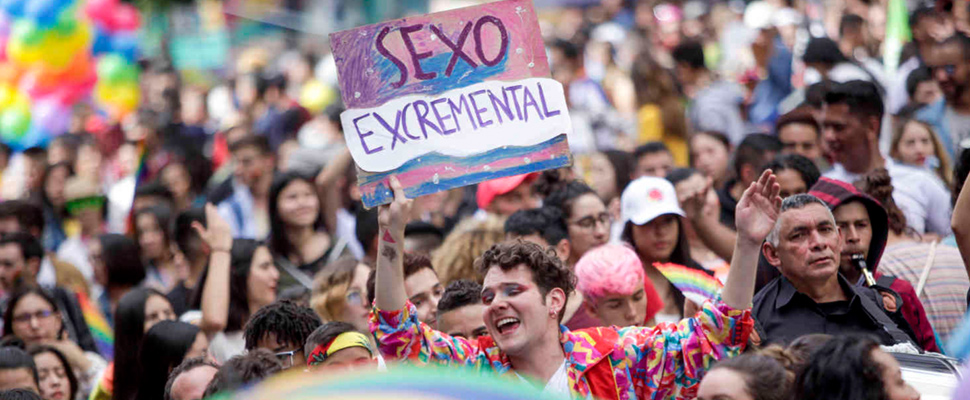Do not do it because it’s trendy: marching in gay pride is an act of courage and resistance
Where do we build our solidarity and support for causes such as gay pride?

Last Sunday, July 1st, two days after LGBTI pride was celebrated internationally, thousands of people left to march in several cities of Colombia under the slogan "Not One Step Back" to demand the protection of the rights of this community.
Not being in a place with organized mobilizations, I decided to open Instagram at night to see a recount of what happened on the day. The images were moving: children of no more than six years of age accompanying their parents to this type of event give an account of a change in education, of a generation that will grow from respect, acceptance, and love free of prejudice.
Leer en español: No lo haga por moda: marchar en el orgullo gay es un acto de valentía y resistencia
Adults who defend the free "being" and "doing" transform my discourse of "lost causes" and allow me to understand that there will always be a way in which, from the action, our message can be heard and even appropriate.
Of course, all this without mentioning my friends who, being part of this community, could express themselves in total freedom for what, in my opinion, was a brief moment. However, in this search, I found some questionable things: messages of solidarity accompanied by the beautiful and daring outfit of the day, group photos with #queer as caption, the use of the day and the occasion to talk about other problems, and a myriad of things I do not want to mention to not pass as resentful.
Lee también: Hate: The high price of being a migrant in the United States
I counseled myself with two very close friends to understand if the problem was me not letting "be" to the other and I found in them very valuable arguments. On the one hand, I understand that everyone handles their social networks as they please and that they are a platform for visibility and free expression but, on the other hand, it becomes daring and even dangerous when someone makes use of such important and finite moments to build (or increase) their popularity through beautiful images and ornate messages.
It would be interesting to support from the information, to keep in mind the 286 people murdered in Brazil in the last three years because of their sexual identity; Monica Ortiz, the trans woman who was burned in her own house in Argentina; to all those who find in suicide the only way out of harassment and persecution; the 6 trans women who had to flee to the United States after three of their friends were murdered and all those who, being the cause, cannot march for fear of being who they are in full freedom.
I believe in activism and the power of the word but I also believe in the coherence between saying and doing: why elaborate speeches and painting of colors if we do not know the context? Why so much revolutionary message if our actions are going to be limited to preaching?
I do not intend to hurt susceptibilities with this article; much less generate a space of hatred or complaint, but I invite the conscious reflection of how we are using our position of "being" privileged for the other and how much we are doing in reality, in social matters, to change things.
LatinAmerican Post | Luisa Fernanda Báez





